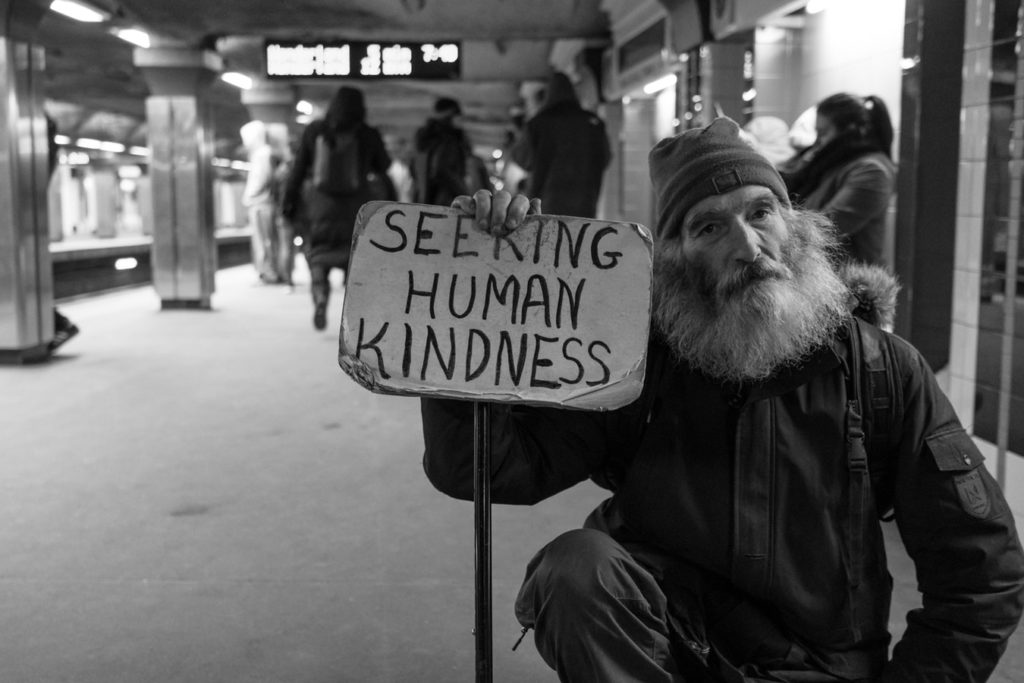Second Church Presbyterian
St. Louis, Missouri
October 14, 2018
Rev. Marianne Wells Borg
Mark 10:17-31
Thank you Travis [Winckler] and Jane Smith for the invitation to be with you this morning. It is an honor. I am glad to be here.
I am an ordained Episcopal priest. But I want you to know my roots are Presbyterian. It’s true. On my father’s side. There were even clergy on his side. My mother was Catholic. So, I guess I am the logical outcome of such a marriage.
Throughout my life it has been Presbyterian ministers and their counsel that have been most influential. It was a Presbyterian pastor who helped me sort out my puzzlements about church and liturgy and belief and experience. It was a Presbyterian pastor who buried my parents and helped my brother get a CO [conscientious objector] during the Vietnam war. It was a Presbyterian pastor who encouraged me to explore the Episcopal church. And even as I am an Episcopalian and my husband was Lutheran, we got married in the Presbyterian Church. First Pres in Corvallis, Oregon. That’s where we connected, where the scales fell from our eyes. So I know whom to thank for bringing me this mighty, mighty long way and who to thank for tying a knot that is stronger than death.
The Gospel According to Mark
Our gospel story tells of man who had done everything right, had many possessions, and implored Jesus, what must I do to inherit eternal life? The Pharisees taught there was an afterlife beyond this world. Jesus didn’t deny that but an afterlife beyond this world was not his message. His message was about the present world, the kingdom of his day. “Eternal life” in this passage refers to what our present and future could look like. Here. In this world. Jesus envisioned a kingdom of God.
The kingdom of God is what our world look like if we saw it through God’s eyes, if you will. What it would look like through God’s heart. How God would act if in human form. For Jesus such a vision, such a heart, central to his own tradition, was a world of compassion. We must be compassionate as God is compassionate. That was his call. To be aware of our mortal coil, the troubles of daily life, the strife and sufferings of the world and be courageous to take them on.
There are two sentences from our Gospel story that I want to focus on. Scholars say only these two go back to Jesus. Everything else in our Gospel this morning is according to Mark.
The Words of Jesus
Here are words in Mark according to Jesus:
How hard it will be for those who have wealth to enter the kingdom of God.
And,
It is easier for a camel to go through the eye of a needle than for someone who is rich to enter the kingdom of God.
Jesus was particularly known for his short, pithy, if inscrutable sayings. Like let the dead bury the dead. Or you strain at a gnat but swallow a camel. Jesus was clever and imaginative with enigmatic and striking word play. He intended to get your attention. Stop you in mid thought. Get you to rethink. Engage your imagination. Cause you to wonder. These sayings of Jesus drove people crazy.
How hard it will be for those who have wealth to enter the kingdom of God. It is easier for a camel to go through the eye of a needle than for someone who is rich to enter the kingdom of God. What does he mean by this?
Anti-Money?
I don’t think these sentences of Jesus’ are anti-money sayings or a flat out indictment of the rich. I think he’s rather acknowledging the seemingly irresistible and seductive power of a system that works for your benefit. It’s hard to critique a system that has privileged you. And those who benefit most from a particular system are usually the ones who have defined it. And they are dedicated to preserving it.
That was as true in Jesus’ day, as it is in our own.
Jesus seemed to be contrasting or comparing a wealthy person with a camel. It seems ridiculous. If not offensive. Because a camel was an “unclean” animal. The first century world was defined by what was considered clean or unclean. Camels were unclean. It had something to do with ruminating and cloven hoofs…. Whatever…. And the rich were assumed to be “clean.” Clean and unclean in the social world incidentally was about social class not hygiene. It was a way of saying who was acceptable to the system and who was not.
So, why the insult to the rich? Have we not all heard those bible verses that say “the righteous shall prosper?” That was an old adage dating way back to Babylonian times. God will bless the righteousness it was writ. And with abundance and health. Add to that the trope “cleanliness is next to godliness.” That phrase long predates John Wesley’s 1778 sermon. It too goes back to Babylon. So this idea was deeply internalized in the culture and had been for a long time.
For Jesus to suggest that a camel, an unclean animal, would have a better chance of squeezing through the eye of a needle than a wealthy person, who by status was considered “clean” and because of wealth was considered “righteous,” to enter the kingdom of God was not only absurd but would have been unsettling if not infuriating. Jesus was playing with sacrosanct notions.
A Rigged System
In Jesus’ day, the rich were getting richer, the system was rigged in favor of the “righteous,” the poor would always be poor, and the seductive power of corruption was ruling the system. The elite who designed the system claimed God’s imprimatur. But the systemic injustice that followed was becoming intolerable.
To borrow from [William Butler] Yeats, the world of Jesus and the world of the Gospel writer Mark some forty years later “was falling apart. The center could not hold. Mere anarchy was loosed upon the world, the blood-dimmed tide was loosed and everywhere the ceremony of innocence was drowned; the best lacked all conviction, while the worst were full of passionate intensity.” The world was in need of change.
Empire is Not Inevitable – Exploring Another Way
Jesus was as deeply acculturated as anyone else. But he did not think empire was inevitable. He was insistent there was another way. And we knew it. But we needed to be awakened from our numbing socialization. Jesus had a profound sense, an awareness, that at the heart of each of us and at the heart of reality itself is compassion. We may call it love. But compassion reaches beyond the interests of the self. Compassion desires to help others. Compassion means to suffer with. It is not to run away from suffering or deny it. To be compassionate is to be present to it. And do our best to do something about it. Jesus insisted God cares about us. God cares about human history. And the way God cares about human history is in and through us. Our deepest self has an instinct for compassion.
God, albeit that great Mystery that cannot be named, or as one theologian calls it, “serendipitous creativity,” [Gordon Kaufman] is arguably that in which we live and move and have our being. God is compassionate and impartial. Without judgement. God does not judge. What sense do we make of that? But do not be mistaken, that does not mean there are not consequences for our actions. Our own actions will judge us all.
Challenging the Social Norms
What I think Mark’s gospel story is saying is how hard it is to change a system that benefits those who design it. How hard it will be for those at the top of a decidedly hierarchical system to change it. To challenge a system that privileges the few rather to serve the common good, to level the playing field so all are on equal footing, foils a meritocracy of righteousess. Some would say such a system would lack standards. It would be like throwing good money after bad. It would be wasteful and disruptive. And erode the very norms the society was built upon. To make such changes to the current system would be like turning the tables of the money-changers upside down. It would wreck havoc.
Conventional wisdom says such change cannot be done. And that’s one of the functions of conventional wisdom. To lull us into thinking there is no other way. So it was in Jesus’ time and so it is in ours.
But we have agency. We have the capacity to reflect and act. And act in new ways. The question is being called on what we do and why. We are at a critical junction.
Recognizing Privilege
And I am hopeful. I am hopeful about humanity. I am counting on our humane humanity, our compassionate and empathic deep human instinct to unbind us from the burial cloth that we are ever so tightly wrapping around ourselves, to step outside the tomb of our own making, and, borrowing from Mary Oliver, to see “beyond time’s brittle drift… shaken out of sleep, rubbing our eyes, listening, parting the leaves like tissue on some vast incredible gift.” And recognize the privilege of our life. That we exist at all. To be so awakened will be to greet “Morning in a New Land.” [title of the Mary Oliver poem] Intimations of resurrection.
This might sound as improbable as a camel squeezing through the eye of a needle. But I am hopeful.
We are living in a dangerous time and an opportune time. The stakes have never been higher. The human future and the sustainability of our planet as our island home is in peril. An old order is dying not thriving. Don’t be disheartened. Stay true to your deepest call. Your deepest self. Where God resides. We are being called to awake and arise. This is no time for compassion fatigue.
Compassion and Empathy
We are capable of division and divides. And we are capable of compassion and empathy. Jesus evoked compassion and empathy from people. Jesus also evoked courage. And helped people see themselves anew. No wonder he was considered the greatest healer of his day. Jesus still evokes compassion and empathy. And we can too. He ignites our imaginations for another vision of the way the world can be.
It is time for us to make a collective move.
Few are Guilty, but all are Responsible
Abraham Heschel, Jewish theologian of the last century, who spoke of his encounter with God as “radical amazement,” made a wise comment about the woes of the world. “Few are guilty,” he said. “But all are responsible.” Few are guilty but all are responsible. We are all responsible now. We see the peril before us. We must act and take responsibility.
Imagination and empathy, compassion and agency. We have these in us. We all do. They are needed to heal our terrified world. We can’t waste our precious days being complicit in a hierarchy of privilege. But how hard it will be for those of us who are quite comfortable with our place in the family of things to take on the magnitude of reimagining and restructuring our fragmented age. But we can do this. And we must. Make haste, Beloveds, make haste. Be compassionate as God is compassionate. Our future depends on it.



